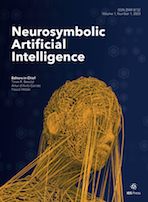Submitted by Sanaz Saki Norouzi on
Special Issue on Neurosymbolic AI: First-Order Logic and Beyond
Neurosymbolic AI is an emerging field that combines the strengths of neural networks and symbolic reasoning to create AI systems that are both powerful and interpretable. This hybrid approach addresses the limitations of traditional AI systems by providing robust, interpretable, and efficient solutions to complex problems. However, existing approaches remain largely propositional or limited to finite-domain relational logic.First-order logic has traditionally formed the backbone of symbolic AI, and recent advancements in knowledge representation and verification communities have expanded into richer logical frameworks including modal logics (temporal and epistemic) as well as causal reasoning. However, integrating these directions with neural networks presents significant technical challenges. First-order logic offers rich expressivity through quantification over potentially infinite domains, which neural networks, operating in fixed-dimensional vector spaces, struggle to represent efficiently. Temporal modal logics enable reasoning about time-dependent properties—crucial for domains like healthcare where treatment protocols follow temporal sequences, but very little is understood about how these could be integrated with neural inference. Likewise, epistemic logics model knowledge and belief—essential for legal reasoning where different actors possess varying information, and causal models capture intervention effects and counterfactual reasoning—vital for financial compliance where understanding causal relationships between actions and outcomes is necessary. The challenge lies in developing neural architectures that can effectively learn and reason with these expressive logical frameworks while maintaining computational efficiency and generalization capabilities. Current approaches often sacrifice logical expressivity for tractability or vice versa, highlighting the need for novel hybrid architectures that can seamlessly integrate neural learning with these advanced symbolic reasoning frameworks.The goal of this special issue is to publish state-of-the-art work in Neurosymbolic AI that tackles the expressiveness/computation tradeoff with these logics. We invite research contributions that develop systems integrating symbolic reasoning (from first-order logic to modal logics and causal frameworks) with neural networks to meet at least some of the key criteria, possibly applied to novel domains. We also welcome discussions on accuracy, explainability, fairness, safety and assurance, in this context. Additionally, we welcome original research that addresses pressing challenges such as scalability and efficiency, ensuring that these hybrid approaches perform reliably even with large datasets and complex tasks.
Topics of Interest
Topics of interest include (but not limited to)
Deadline
September 30, 2026. Paper submitted before the deadline will be processed as soon as theyare received.Guest Editors
Contact email for the guest editors: nai-fol-beyond@googlegroups.com
